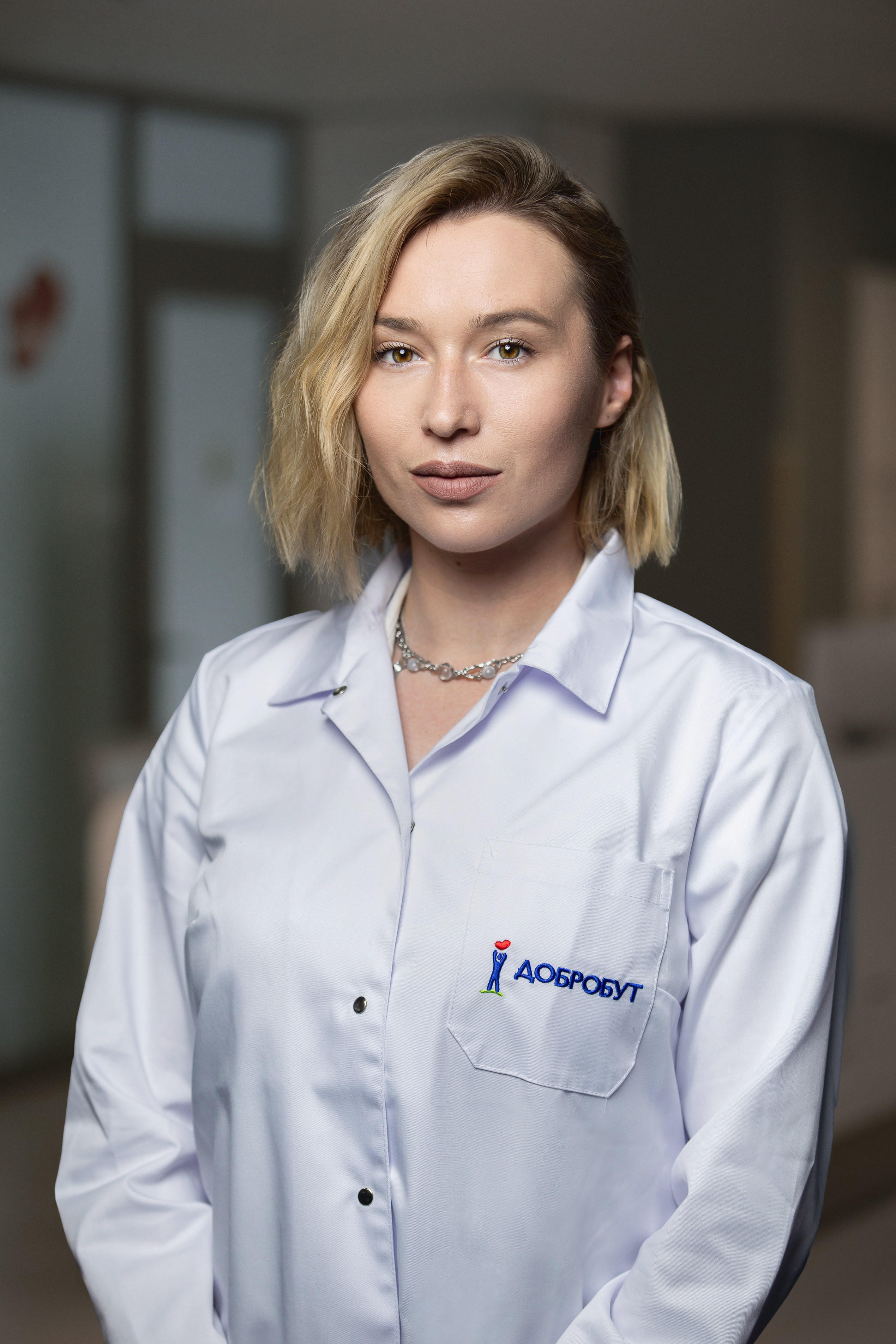Information about the doctor Bilan Daria Volodymyrivna
Education:
- Zhytomyr Ivan Franko State University;
- Ukrainian Institute of Positive Cross-Cultural Psychotherapy and Management
Membership in associations, societies; attending conferences, thematic improvement courses:
- advanced training in psychology at K.D. Ushynsky South Ukrainian National Pedagogical University: "Psychological support for military personnel and their families";
- participation in the MASHAV training program (Israel) — “Psychological Support in Crisis Situations”;
- participation in the International Scientific and Practical Conference “War and Exhaustion. Psychology of Resistance and Recovery”;
- regular participation in workshops and training programs on trauma-informed care, support for released prisoners of war, flashback anatomy, psychological preparedness, and resilience in combat conditions;
- advanced training in the field of "Psychosomatics", International Psychological Association of Projective Methods.
Areas of professional development:
- military experience during the full-scale invasion became a key moment of personal and professional growth and defined my focus on psychological trauma related to war;
- regular supervision and personal therapy help maintain my own resources, professional stability, and the ability to provide effective psychological support to others;
- participation in specialized workshops, seminars, and continuing education courses helps implement modern psychological techniques (work with trauma, stress reactions, PTSD);
- public activity and education: development and delivery of training and lectures for people affected by war, focusing on mental health preservation;
- educational work with military personnel: creating lectures and programs on stress response, psychological first aid, mental preparedness, and resilience in combat situations.
Priority areas in clinical practice:
- psychological support for military personnel and veterans: helping to cope with combat stress, PTSD symptoms, anxiety and depressive states. Work with flashbacks, adjustment disorders, comorbid conditions. Psychological support for soldiers who returned from captivity;
- work with couples and families: helping overcome conflicts, relationship crises, building interpersonal connection, and decision-making around separation;
- support in challenging life circumstances: psychological support through grief, loss, emotional shock. Work with suicidal thoughts and internal crises;
- recovery of internal resources and meaning: assisting in finding life anchors, strengthening self-esteem, achieving inner balance, overcoming apathy and loss of meaning;
- burnout prevention: addressing exhaustion, chronic fatigue, and low motivation. Training in self-regulation skills, self-care, and resource recovery.
Tell us about your professional interests other than your specialization:
- "I pay special attention to the topic of post-traumatic growth — as a resource for personal recovery after difficult experiences. I'm interested in international approaches to psychological support, analyze effective global practices, and adapt them to the needs of Ukrainians during wartime. I also use art therapy techniques and equine therapy as additional tools for emotional healing."
Hobbies, favorite movies, books:
- "Hiking in nature, sports, airsoft. I'm a fan of books by Konstantin (Valde) Ulyanov. I recommend his book Armored Mind — about the impact of combat stress on the body and psyche."
Doctor's advice:
- "Now more than ever, it's important to treat yourself with care. Learn to listen to your thoughts, emotions, and body. And remember: asking for help is not a weakness, it’s your strength."
